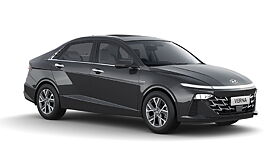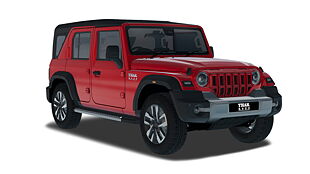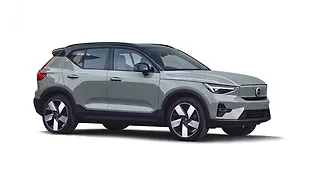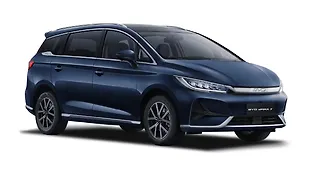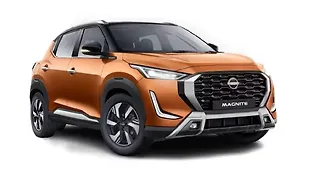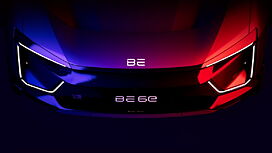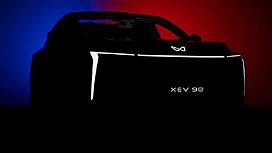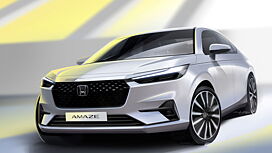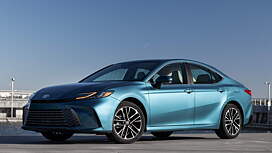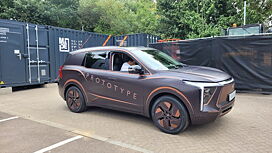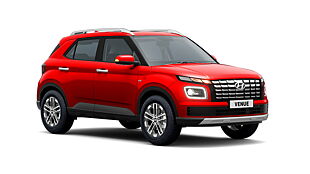Introduction
Back in 2006, South Korean carmaker, Hyundai, launched the Verna in India for the first time. This was the second sedan from the manufacturer in the country after the Accent. Now, Hyundai India has given it another generation update with a complete makeover. This sixth generation of the Verna aims to set a benchmark in the sedan category for other manufacturers. We have seen the new Hyundai Verna in person and here is everything you need to know about it.
How is it on the outside?

Upfront, the Hyundai Verna gets a low-mounted parametric jewel front grille and a long LED bar running across the width of the bonnet. The silhouette showcases the aerodynamic and futuristic profile of the sedan. The edges and the surface are chiseled to give it a bold and contemporary look. At the rear, it features ‘H-shaped’ parametric connected LED taillamps with a ‘Verna’ badging right under the Hyundai logo encased in the light housing.

The EX and S variant ride on 15-inch steel wheels while the SX and SX(O) variant get bigger 16-inch diamond-cut alloy wheels. The turbo variant looks sportier with black alloys with four disc brakes, red front calipers and a ‘Turbo’ badge on the boot.

In terms of dimensions, the Hyundai Verna has grown and now measures 4,535mm in length, 1,765mm in width, and 1,475mm in height. The wheelbase has been stretched and the distance between the wheels is now 2,670mm. It gets a bigger boot space of 528 litres which is the largest in the segment.

The all-new Hyundai Verna can be had in seven monotone colours that include Fiery Red, Typhoon Silver, Starry Night, Titan Grey, Abyss Black, Atlas White, and Tellurian Brown. Customers can also choose from two dual-tone colours – Atlas White with a black roof and Fiery Red with a black roof which is only restricted to the turbo variants.
How is it on the inside?

Hyundai has overhauled the cabin of the all-new Verna. It is now more futuristic and tech-loaded. You get a black and beige cabin theme with silver accents on the dashboard, door handles, steering wheel, and door pads for the regular variant.

The turbo variant, on the other hand, sports an all-black interior theme with red accents replacing the silver ones. It gets premium leatherette upholstery with red piping on the seats reminding one of the brand’s N-Line models.

Right in front of the driver’s seat, is a fully-digital driver’s display placed next to a new 10.25-inch touchscreen unit, both integrated neatly into the binnacle placed on the dashboard. The AC vents are now sandwiched between the infotainment screen and the centre console. It is the first in the segment to get a switchable type of infotainment and climate controller. What does this mean? Simply put, with a touch of a button, one can now shuffle between the digital controls for infotainment and aircon controls on a single control panel.

To enhance the mood of the driver and passengers, the Verna now features 64-colour ambient lighting that runs across the dashboard and on the door trims. These lights are also linked to the drive modes and change colour based on the selected one. Moreover, it also gets an ambient sound of nature, a cooled glovebox, a centre armrest with storage, a wireless charger, paddle shifters, a voice-enabled smart electric sunroof, a rear manual curtain and first-in-class front ventilated and heated seats.

What safety features does it get?
In terms of safety, the all-new Hyundai Verna gets six airbags as standard across all the variants. Apart from this, it also gets 65 advanced safety features like speed sensing auto door lock, ABS with EBD, emergency stop signal, front and rear parking sensors, automatic headlamps, hill start assist control, electronic parking brake, cornering lamps, a tyre pressure monitor, electronic stability control, and more.

Additionally, it is also equipped with Hyundai’s 17 SmartSense Level 2 ADAS features. These active features include forward collision warning, a blind-spot monitor with warning, lane-keep with departure assist, safe exit warning, adaptive cruise control, rear cross-traffic collision warning, and Bluelink connected car tech.
What’s under the hood?

The 1.5-litre diesel engine has been discontinued and the Hyundai Verna can now be had with only two gasoline motors - a 1.5-litre turbo-petrol and a 1.5-litre naturally aspirated petrol engine. The former belts out 158bhp/253Nm and comes mated to a six-speed manual or a seven-speed DCT unit while the latter produces 113bhp and 144Nm of torque and comes paired with a six-speed manual or a CVT unit. Hyundai says that the turbo variant can sprint from zero to 100kmph in just 8.1 seconds. Both powertrains are BS6 2-compliant and can run on a blend of E20 fuel.

The 1.5-litre NA petrol motor returns an ARAI-claimed fuel efficiency of 18.6kmpl with the six-speed manual and 19.6kmpl with the CVT unit. On the other hand, the 1.5-litre turbo-petrol claims an average of 20kmpl when mated with a six-speed manual and 20.6kmpl when paired with a DCT. The sedan can be driven in three driving modes namely Eco, Normal, and Sport.

Pricing and competition

The Verna is broadly offered in four variants namely, EX, S, SX, and SX (O). The introductory prices start at Rs. 10.90 lakh (ex-showroom) for the base variant and go all the way up to Rs. 17.38 lakh (ex-showroom) for the top-end variant. The manufacturer has already commenced bookings for the sedan against a token amount of Rs. 25,000, with deliveries set to begin soon.

The all-new Hyundai Verna rivals the new Honda City, Volkswagen Virtus, Skoda Slavia, and Maruti Suzuki Ciaz in the sedan category in India.

